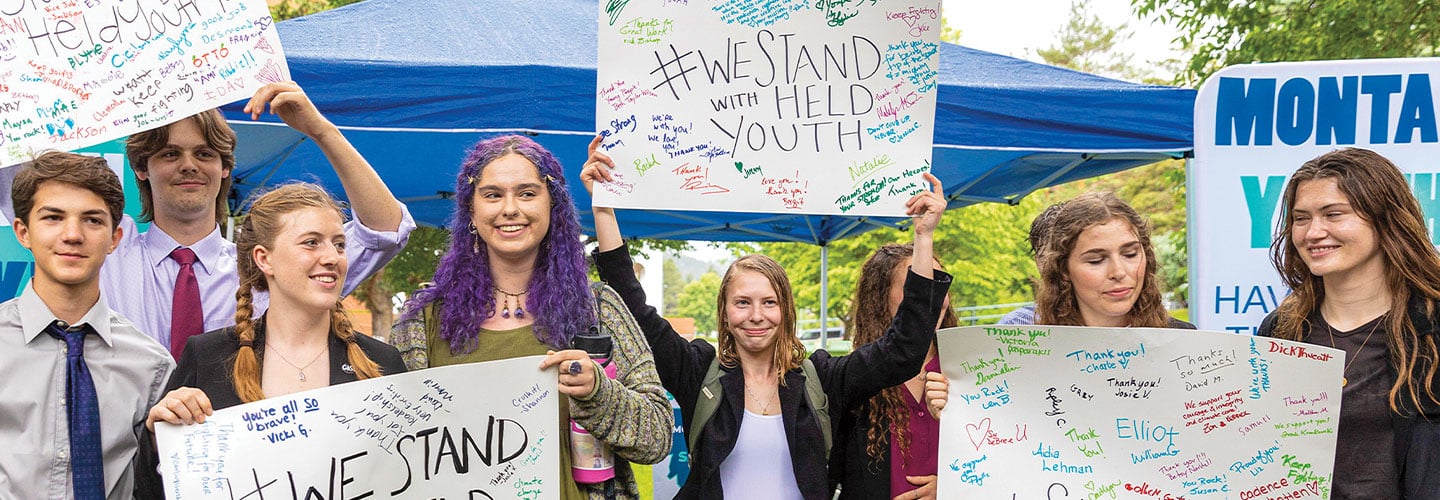Rikki Held grew up on a ranch in southeast Montana. At 4 years old, she learned to ride a horse and round up cattle. When she wasn’t baling hay and building fences, she and her twin brother would swim in the Powder River, which ran through their family’s land. As a kid, Held didn’t really think about climate change—until she started seeing its effects with her own eyes.
First, a drought caused the Powder River to dry up. Years later, warm weather melted winter snow early, causing the river to overflow. The floodwaters sucked in fences and almost reached Held’s home. Each summer, worsening wildfires would burn fields, destroy power lines, and fill the sky with ash. It became dangerous for Held’s family to work in the heat and smoke.
Held knew she had to do something to protect her family’s livelihood and future. “This is my home,” says Held, now 22. “I get emotional about it. I don’t know what the future of the ranch will be.” So in 2019, she joined 15 other young people from across Montana in a historic lawsuit: Held v. State of Montana. (The case carries Held’s name because she is the lead plaintiff, or person who initiated the lawsuit.)
In the summer of 2023, the young people, whose ages now range from 6 to 22, appeared in court to state their case. They argued that policies made by the Montana government were contributing to climate change, violating their rights to a healthy environment.
Rikki Held grew up on a ranch in southeast Montana. At age 4, she learned to ride a horse and round up cattle. Held baled hay and built fences. The Powder River ran through her family’s land. She and her twin brother liked to swim in it. As a kid, Held didn’t really think about climate change. Then she started to see its effects herself.
First drought dried up the Powder River. Years later, warm weather melted winter snow early. That made the river overflow. The floodwaters sucked in fences and almost reached Held’s home. Wildfires got worse. Each summer, they burned fields, destroyed power lines, and filled the sky with ash. It became dangerous for Held’s family to work in the heat and smoke.
Her family’s livelihood and future were at risk. Held knew she had to do something. “This is my home,” says Held, now 22. “I get emotional about it. I don’t know what the future of the ranch will be.” So in 2019, she joined 15 other young people from across Montana. They filed a historic lawsuit: Held v. State of Montana. (The case carries Held’s name because she is the lead plaintiff. That’s a person who starts a lawsuit.)
These young people are now ages 6 to 22. In the summer of 2023, they appeared in court to state their case. They argued that the Montana government’s policies contribute to climate change. And that violates their rights to a healthy environment.

